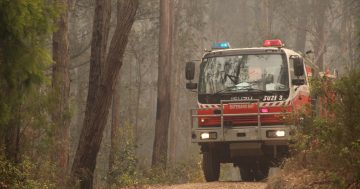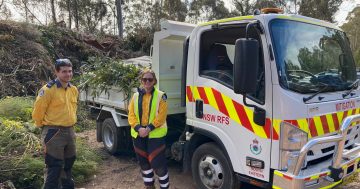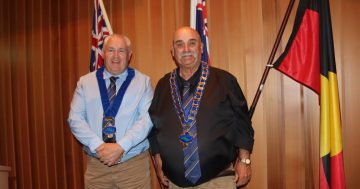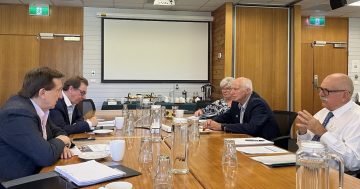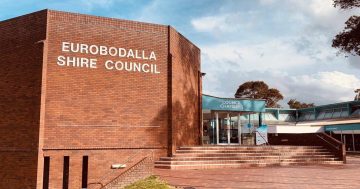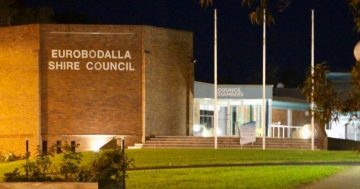
Councillors from regional and rural councils across New South Wales, including Eurobodalla Shire mayor Mat Hatcher (holding the ‘stop’ sign) aired their concerns at the Local Government NSW Summit. Photo: LGNSW.
Eurobodalla Shire mayor Mat Hatcher has joined regional and rural council representatives from across the state in calling for the New South Wales Government to stop “cooking the books” on assets belonging to the Rural Fire Service (RFS).
Cr Hatcher took a stand at Tuesday’s Local Government NSW (LGNSW) Summit which claimed the dumping of RFS equipment depreciation costs on council accounts would result in less money for road and asset maintenance, council services and local community infrastructure.
The LGNSW call follows the receipt of qualified audits by around 40 councils, due to their refusal to include the depreciation cost of RFS assets, including vehicles, they neither own, nor control.
In a letter to the Auditor General, Cr Hatcher said the RFS equipment had been “vested” to Eurobodalla Shire Council, but it was not “controlled” by council.
“The State Government’s own Local Government Accounting Code of Accounting Practice and Financial Reporting states councils can choose whether to record this equipment as part of their financial statement,” he said.
Cr Hatcher said the Government had also advised that neither the Department of Planning and Environment, nor the Local Government Minister had legal authority to direct councils to record the assets and assume the costs.
“Taking all of the above into account, and noting that I’m obliged to attest that council’s financial statements have been prepared in accordance with the Australian accounting standards … council will not be recording RFS “red fleet assets” in council’s financial statements for the year ended 30 June 2022.”
Cr Hatcher said councils did not economically benefit from these assets and had no right to use the equipment to deliver their own services, nor was there any say in the acquisition, deployment or disposal of assets, including firefighting trucks and equipment.
“Eurobodalla Council continues to account for RFS buildings in its financial statements as the land under RFS buildings is owned by the council,” he added.
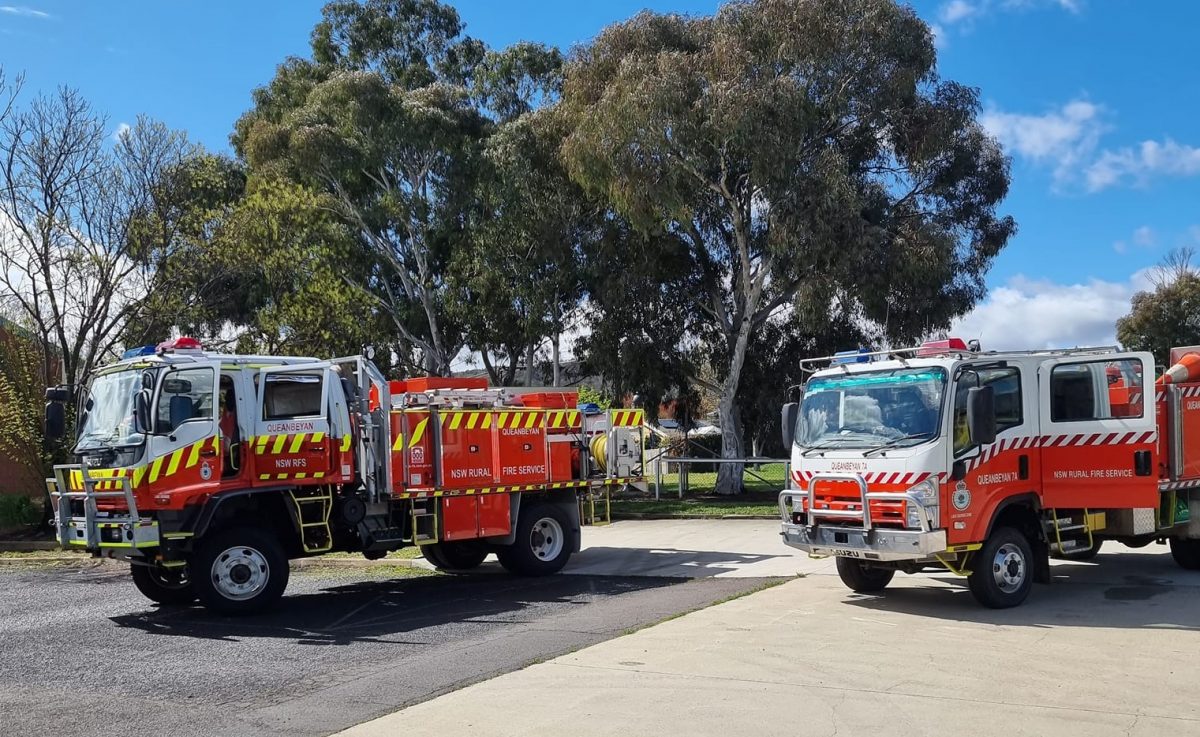
Councils are calling for the State Government to take full financial responsibility of RFS assets, including fire trucks. Photo: Queanbeyan RFS.
LGNSW President Darriea Turley AM said the equipment ordered by, used by, maintained by and disposed of by the NSW RFS was the property of the RFS, and the depreciation needed to be recorded accurately in their accounts.
“This financial sleight of hand, where depreciation costs are dumped onto council accounts to make state government budgets look better, is misleading and disingenuous,” Cr Turley said.
“The NSW Government continues to dig its heels in on the issue and heap more financial uncertainty on the local government sector at a time when councils facing unprecedented natural disasters can least afford it.
“Qualified audits create serious financial repercussions if they limit councils’ ability to obtain loans and the grants they depend on to serve their community.
“The Government needs to do the right thing: take back control of the RFS assets and restore accounting transparency to the process.”
Cr Turley said LGNSW and councils across the state wholeheartedly supported the efforts of RFS volunteers who “do a heroic job to keep communities safe”.
“This is purely about questionable accounting practices adopted by the NSW Government,” she added.
“Requiring councils to record in their financial statements the total annual depreciation expense of RFS red fleet assets – estimated to be $145 million in the past year – will result in many councils having even less money to provide and maintain other community infrastructure and services.
“That hurts everybody, including the RFS volunteers.”
Cr Turley said the financial sleight of hand demonstrated a “real disregard” for rural and regional communities.
“We’re so concerned about the implications of this issue that several metropolitan councils – who don’t even have an RFS – have passed motions in support for the communities that do,” she said.
“Councils are speaking with one voice and we won’t tolerate this Government’s attempts to polish up their own accounts at councils’ expense.”
The LGNSW is willing to work with the Government to resolve this discrepancy as quickly as possible so that councils can concentrate on the recovery needs of communities right across the state.



